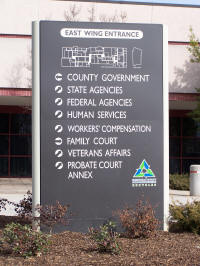|
Legal Services:
|
We represent
injured workers/employees with:
-
Amputation
-
Fractures
-
 Back and
Neck Injuries Back and
Neck Injuries
-
Shoulder
Injuries (i.e., rotator cuff, impingement,
tendonitis)
-
Spinal Cord
Injuries
-
Traumatic
Brain Injuries (TBI)
-
Head
Injuries, Closed Head Injuries
-
Broken
Bones/ Scars
-
Paralysis
-
Herniated
and Ruptured Discs
-
Severe
Burns
-
Repetitive
Trauma Injuries
-
Carpal
Tunnel
-
Hand and
Finger Injuries
-
Leg, Knee
Injuries
-
Foot, Heel,
and Ankle Injuries
-
Mental, Depression, and
Psychological Injuries (i.e., PTSD)
-
Death Claims
-
And other
serious injuries
12 million
work-related injuries occur each year and equal 20% of
all injuries in the
United States.
7.2 million injuries involve the
musculoskeletal system.
(Bureau of Labor
Statistics,
United
States
Department of Labor).
The South Carolina Workers'
Compensation Act is a state-regulated insurance program
administered by the South Carolina Workers’ Compensation
Commission that helps workers who are injured on the job
or suffer diseases related to their occupation. A
workers' compensation claim is different from a general
personal injury claim. To recover on a workers'
compensation claim, the employee only needs to show that
the injury was work related, not that the employer was
negligent in any way.
Workers’
Compensation is a no fault system.
Usually fault or negligence on the part of the
employee will not affect your Workers' Compensation
claim. If someone other than your employer or another
employee caused the work injury, you should immediately
consult with a
lawyer. For
instance, if you were driving on your job and another
driver causes an accident injuring you, you would have
both a workers’ compensation claim (with your employer)
and a third party negligence claim against the at-fault
driver. You
can pursue both, but without a lawyer, you may be
limited to one or the other.
We can evaluate the best way for you to recover
for your injuries without giving up any rights you have
under the South Carolina Workers’ Compensation Act.
Further, the fact that the employee
had a previous injury or claim concerning the same body
part will not invalidate the claim.
A work injury that aggravates of a pre-existing
injury or condition is covered.
Aggravation of pre-existing back conditions is
common in back injuries under workers’ compensation.
Unless a defective, unsafe machine or
product is involved, allowing for a separate product
liability claim, a workers' compensation claim is the
employee's only recourse against the employer for work
related injuries. The compensation an employee is
entitled to under workers' compensation may be
substantially less than the compensation available in a
general personal injury claim. Benefits include weekly
compensation to disabled workers, medical expenses,
partial or total disability, mileage reimbursement, and
death benefits.
Employers and
insurance companies use professional adjusters and
lawyers who are familiar with Workers' Compensation
system to protect their rights. But most workers do not
know their rights or benefits. Generally, under
South Carolina
law, you must notify your employer of a work injury
within 90 days of the injury. For carpal tunnel and
repetitive motion injuries cases, the employee must
notify the employer of the injury/claim within 90 days
of discovery and/or diagnosis, whichever occurs first.
Further, your claim must be filed within 2 years
of the accident or injury or it may be barred by law.
We Represent ALL Injured Persons
|